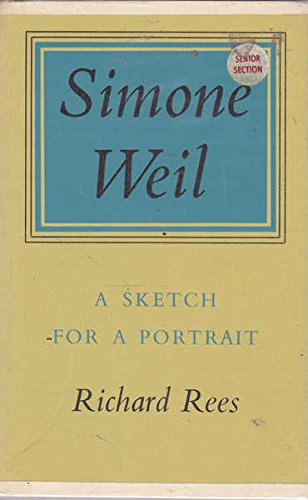Simone Weil was a remarkable woman: a teacher, a factory worker, a field hand, a traveler, and a frontline volunteer in the Spanish Civil War; yet she found time to write and to philosophize about life and religion. Her short life (1909 43) spanned two world wars, although she did not live to see the end of the second one. The reactions of this French Jewish woman to some of the facets of these conflicts may seem surprising; her sympathies and affirmations were perhaps too extreme, but she did think for herself in an unorthodox and challenging way and had a passionate sense of justice.Mr. Rees believes that this book may contain more illumination for the present world s spiritual needs than any other twentieth-century commentary. Some of Simone Weil s proposals concerning patriotism, obligations, freedom of expression, and the needs of the soul may seem Utopian, but they would not be unreasonable in a society adopting her moral code.Simone Weil was an intellectual with an essentially tragic view of life, but she was not removed from the everyday life. Her thought was unique and cannot be classified. She was neither a reactionary nor a progressive but a great soul and a brilliant mind, as T. S. Eliot expressed it, with a kind of genius akin to that of the saints. Since she explored problems which confront modern man, the reader will find thoughtful stimulation in her work. In a previous book, "Brave Men," " "the author likened her to D. H. Lawrence both lonely visionaries suffering from a devouring spiritual hunger.This book gives a condensed but penetrating account of Miss Weil s interests. Since her writings cover more than philosophy and religion, the reader will feel compelled to become more familiar with her work."
- ISBN10 0192111639
- ISBN13 9780192111630
- Publish Date May 1966 (first published 1 February 1966)
- Publish Status Out of Print
- Out of Print 17 October 2003
- Publish Country GB
- Imprint Oxford University Press
- Format Hardcover
- Pages 168
- Language English
